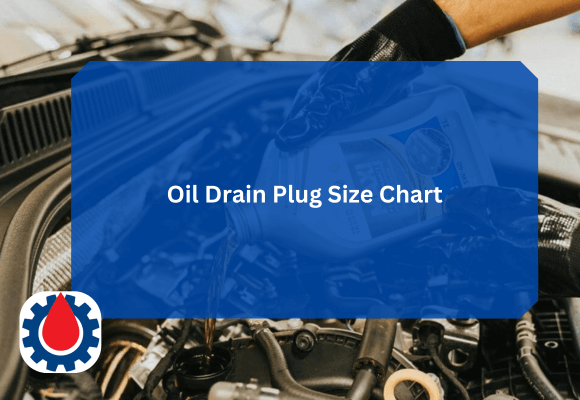Two commonly used oils, hydraulic oil, and engine oil, often confuse many due to their lubricating functions. However, they serve entirely different purposes and are formulated with distinct properties. In this post, we’ll explore the differences, similarities, applications, and key characteristics of hydraulic oil vs engine oil.
Hydraulic Oil vs Engine Oil
What is Hydraulic Oil?
Hydraulic oil is a fluid used in hydraulic systems to transfer power. It is a non-compressible liquid that enables the movement of components like pistons, pumps, motors, and valves in machinery. These systems rely on hydraulic oil to function efficiently by transmitting energy and providing lubrication, sealing, and cooling.
Key Functions of Hydraulic Oil:
- Power transmission in hydraulic systems
- Lubrication of moving parts
- Heat dissipation (cooling)
- Corrosion prevention
- Sealing small clearances to prevent leakage
Hydraulic oils are widely used in excavators, forklifts, tractors, aircraft, presses, and industrial machinery.
Related Dino Oil vs Synthetic Oil(Shocking Performance Differences)
What is Engine Oil?
Engine oil, often referred to as motor oil, is primarily used in internal combustion engines. It serves to lubricate engine parts, reduce friction and wear, clean engine components, and regulate temperature by dispersing heat.
Key Functions of Engine Oil:
- Lubrication of engine parts
- Cooling internal engine components
- Cleaning through detergents and dispersants
- Protecting against rust and corrosion
- Enhancing performance through additives
Engine oil is commonly found in cars, trucks, motorcycles, generators, and other combustion engines.
| Feature/Property | Hydraulic Oil | Engine Oil |
|---|---|---|
| Primary Purpose | Power transmission in hydraulic systems | Lubrication and protection of engines |
| Viscosity Range | Lower to moderate (depends on system) | Wider range; high-temp viscosity stability |
| Additives Used | Anti-wear, anti-foam, rust inhibitors | Detergents, dispersants, anti-wear, etc. |
| Detergents Present | No (typically) | Yes |
| Operating Temperature | Moderate, depending on the system | High-temperature endurance is required |
| Oxidation Stability | Very important due to long use periods | Critical to avoid sludge and varnish |
| Water Separation | Essential (demulsibility) | Not typically required |
| Foam Control | Important | Important |
| Contaminant Tolerance | Low; requires filtration | Moderate; engine oil disperses contaminants |
| Applications | Hydraulic machinery, lifts, power tools | Engines (cars, trucks, bikes, etc.) |
| Color and Texture | Typically clear/light amber | Darker amber to brown |
Related Best Synthetic Engine Oil for Diesel Engines(5 Best 2025)
Key Differences Explained
1. Purpose and Function
- Hydraulic Oil: Designed to transmit power in a hydraulic system while also lubricating and reducing wear.
- Engine Oil: Designed to lubricate engine components and reduce friction from combustion processes.
2. Additive Packages
Hydraulic oil contains anti-wear agents, rust inhibitors, and foam suppressants, but it usually lacks detergents or dispersants.
Engine oil contains a complex set of additives, including detergents, anti-oxidants, viscosity modifiers, and dispersants to manage carbon buildup, sludge, and high-temperature oxidation.
Related Diesel Engine Oil Additives(Benefits & Top Oil Additives)
3. Thermal Properties
Engine oils are engineered to withstand high temperatures and variable conditions inside combustion engines. Hydraulic oils typically work within moderate temperature ranges, depending on the equipment and its working environment.
4. Viscosity Requirements
- Engine oils often come in multi-grade viscosities like 5W-30 or 10W-40, optimized for cold starts and high heat.
- Hydraulic oils usually use single-grade viscosity ratings, such as ISO 32, ISO 46, or ISO 68, based on the system’s pressure and flow requirements.
5. Contamination Handling
Engine oil is formulated to suspend contaminants (thanks to dispersants), preventing sludge buildup. Hydraulic oil relies more on filtration systems and must be kept clean to avoid system failures.
Related Engine Oil Recommendation Chart(Complete Guide 2025)
Can You Use Engine Oil Instead of Hydraulic Oil?
In most cases, no, you should not substitute engine oil for hydraulic oil. Here’s why:
- Engine oil has detergents and dispersants that are not required in hydraulic systems and may cause foaming or filter clogging.
- Hydraulic systems are sensitive to viscosity and fluid cleanliness—using engine oil may reduce efficiency or damage components.
However, in emergency situations or specific older machinery, some manufacturers allow the use of engine oil as hydraulic fluid, but this should only be done after checking the equipment manual or consulting the manufacturer.
Can You Use Hydraulic Oil in an Engine?
Absolutely not. Hydraulic oil lacks the required detergents, thermal stability, and viscosity modifiers needed for combustion engine operation. Using hydraulic oil in place of engine oil can result in:
- Severe engine wear
- Overheating
- Oil breakdown under high temperature
- Engine failure
Always use the recommended engine oil type and viscosity specified in the vehicle or machine manual.
Related Engine Oil Filter Comparison Chart(7 Best Oil Filters 2025)
Maintenance Considerations
Hydraulic Oil:
- Must be monitored regularly for water contamination and viscosity breakdown.
- Systems often use filters to keep fluid clean.
- Biodegradable and fire-resistant variants are available for environmental applications.
Engine Oil:
- Requires regular oil changes, typically every 3,000–10,000 miles, depending on vehicle and oil type.
- Spent engine oil contains toxic substances, requiring proper disposal.
Which One Do You Need?
- If you’re dealing with machinery that runs on hydraulic power (e.g., excavators, lifts, aircraft systems), you need hydraulic oil that offers stability, lubrication, and energy transmission.
- If you’re maintaining a car, truck, or any combustion engine, then engine oil is essential for cooling, lubrication, and performance.
Final words
Each oil type is uniquely formulated to meet the demands of its specific environment and use case. Misusing one in place of the other can lead to performance issues, component damage, and costly repairs.
With the correct fluid in place, you can ensure smooth operation, reduced wear, and a longer lifespan for your machinery or vehicle.




